If there is one word I could use to describe Lee Scheufler, my father and the co-owner/operator of Scheufler Farms, Inc. it would be efficient.
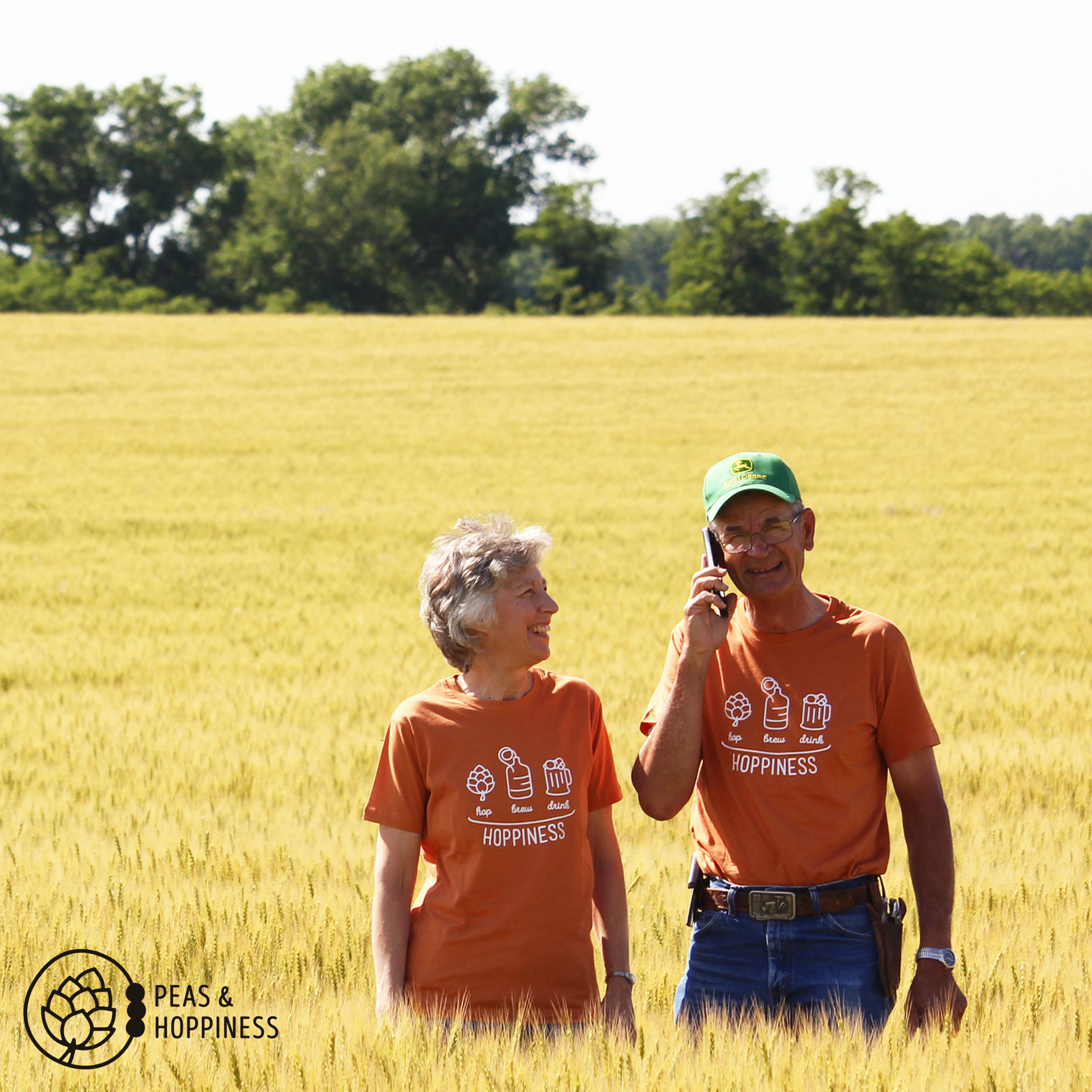
Margaret & Lee Scheufler, co-owners/operators of Scheufler Farms, Inc.
“I wasn’t going to marry a farmer!” declares Margaret, wife of efficient Lee, my mother and co-owner/operator of Scheufler Farms.
“But my charm overwhelmed her,” Lee jokes with a wink.
Scheufler Farms is a large-scale grain farm in the smack-dab center of Kansas. Lee and Margaret have been married over 30 years and together manage this 100% family farm with only one full-time employee. Their farming philosophy is to run a highly efficient enterprise to capture low cost per unit production.
As Margaret says, “We want to work smarter, not harder.”
Lee and Margaret grow a strict crop rotation of wheat, corn, soybeans, and grain sorghum. The environment of central Kansas has low rainfall, lots of space, but limited access to labor – thus ideal for producing crops which can be grown with large-scale equipment. With only three full-time employees, a few seasonal workers, and limited options for hiring laborers Scheufler Farms has improved efficiency to eliminate the need for many employees.
“In agriculture in the last century we first replaced horsepower with mechanical horsepower,” Lee explains. “Then we replaced labor with mechanization in every aspect of farming from how cattle are fed and hay is gathered to how large of a tool one can effectively pull through the field.”
While the size of the farm has grown, the philosophy has not. The original land obtained from the Homestead Act of 1862 is still in rotation. Lee says, “I hope to be able to farm a large scale farm as effectively as my grandparents were able to farm a small scale farm – where they were able to know their land and specifically apply a fertility cropping program and/or practice.”
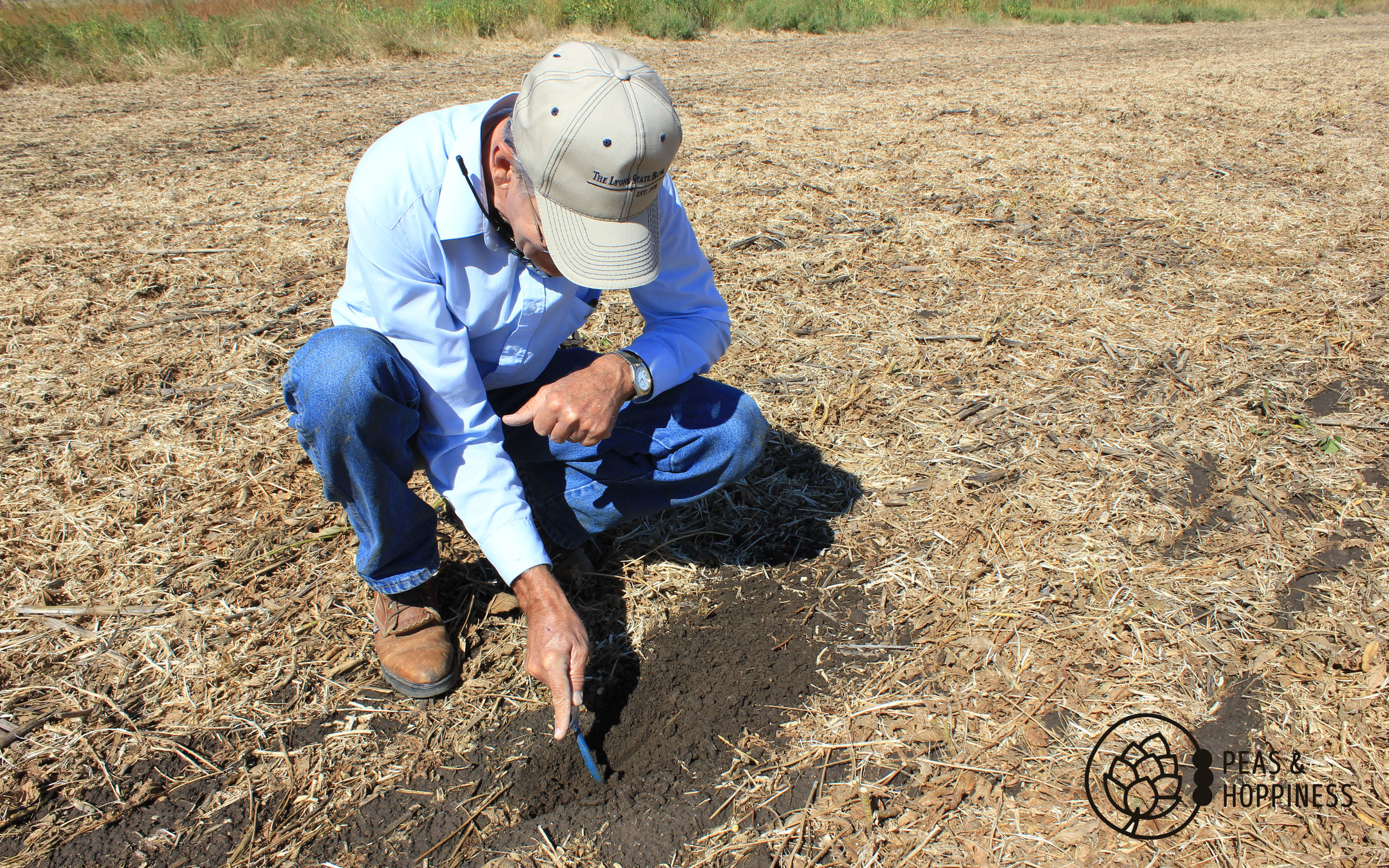
Double-checking the spacing of corn seeds planted in soybean stubble – evidence of no-till farming
Based on the on-farm research Lee and Margaret have participated in, they have chosen to pursue no-till farming. No-till is a farming technique which avoids disrupting the topsoil: meaning no tillage equipment is pulled through the field (like you would hoe a garden). Instead, weeds and other pests are mitigated using chemicals applied to the field or added to seeds when planted. Their research has shown that no-till maintains the integrity of the nutrient-rich topsoil, prevents runoff, and ultimately maintains the quality of soils long-term.
The farm’s use of precision agriculture tools allows application of fertilizers only when and where they are needed, thus minimizing runoff and preventing water pollution. To prevent herbicide-resistant crops and insecticide-resistant bugs they use a variety of pest control techniques.
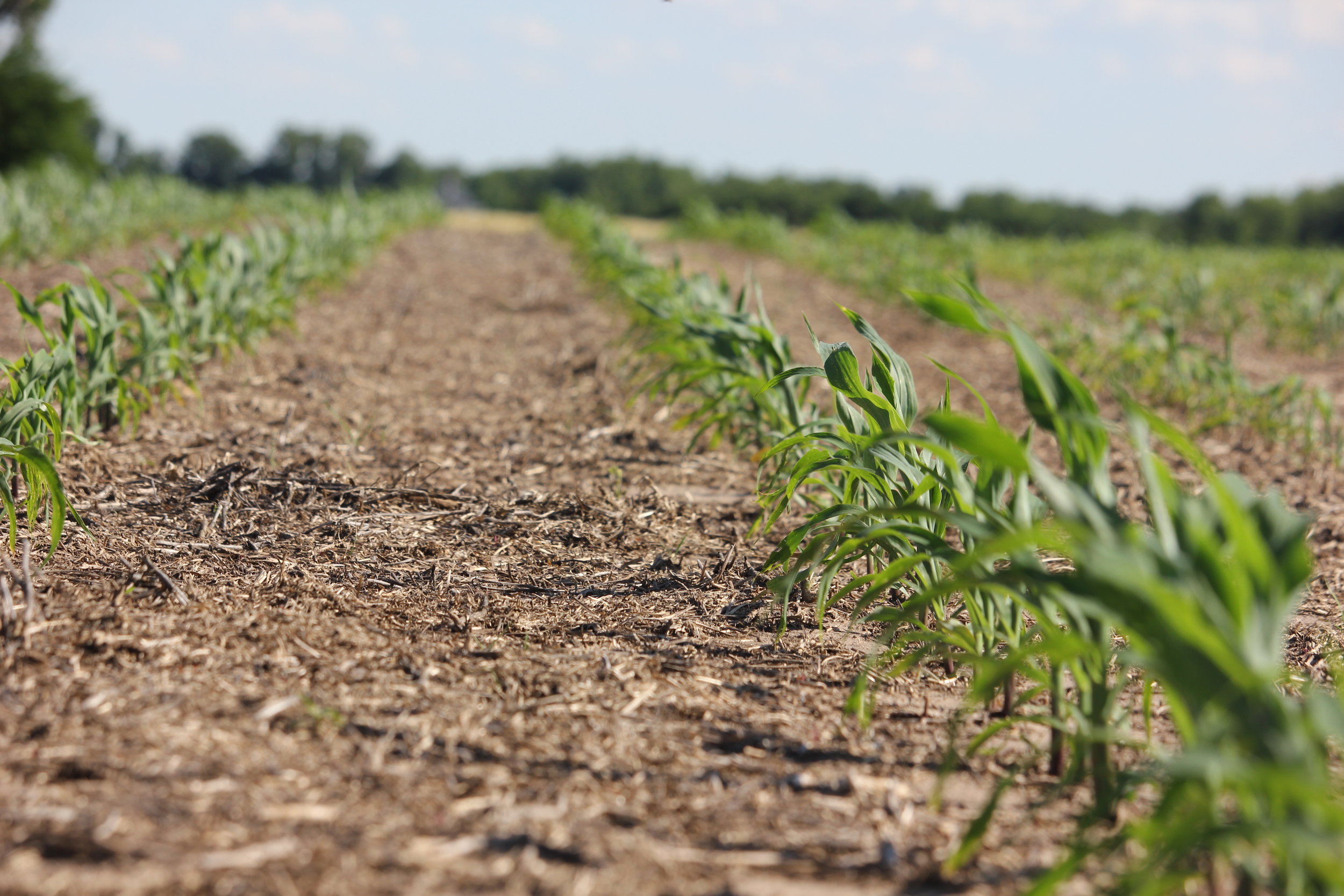
Baby corn crop planted in milo (grain sorghum) stubble
Overall, many more conservation efforts are in effect now than they were in the previous generations, Lee explains. However, not all conservation techniques are right for every farm. For example, because of the on-farm research Lee and Margaret have conducted, they know on their farm cover crops (planted between growing cycles rather than allowing the field to remain fallow) actually decrease yields rather than improve them.
“One of the shortcomings of all government regulations is the one-size-fits-all nature of a regulation,” says Lee. “Our experience would say that the promotion of cover crops is maybe correct from a national sense, but at the local level (i.e. our farm) it’s not a good thing to do.”
“We hope to leave the land in as good or in better condition for future generations as when we found it,” Lee states, referring to an ancient Native American Proverb, “’You don’t own your land, you only borrow it from your children.’ But many people get tied up in the weeds, so to speak, because if they are not profitable they don’t have a choice.”
>
“We do not inherit the Earth from our ancestors, we borrow it from our children.”
Ultimately Lee and Margaret define sustainability in agriculture as the ability of the producer to stay in business. “If your program doesn’t satisfy this,” says Lee, “I don’t think there is any further discussion. Profitability is probably the biggest challenge we face today.”
Today farmers compete with a world – rather than regional – market. Although prices have dropped in recent years due to world-wide surpluses (see: Volatility), input costs have continued to rise.
To overcome these challenges, Lee Scheufler relies on efficiency: scrutinizing input costs; using on-farm storage to defer sales to more favorable price times; honing precision agriculture skills; using risk management techniques to minimize potential loses.
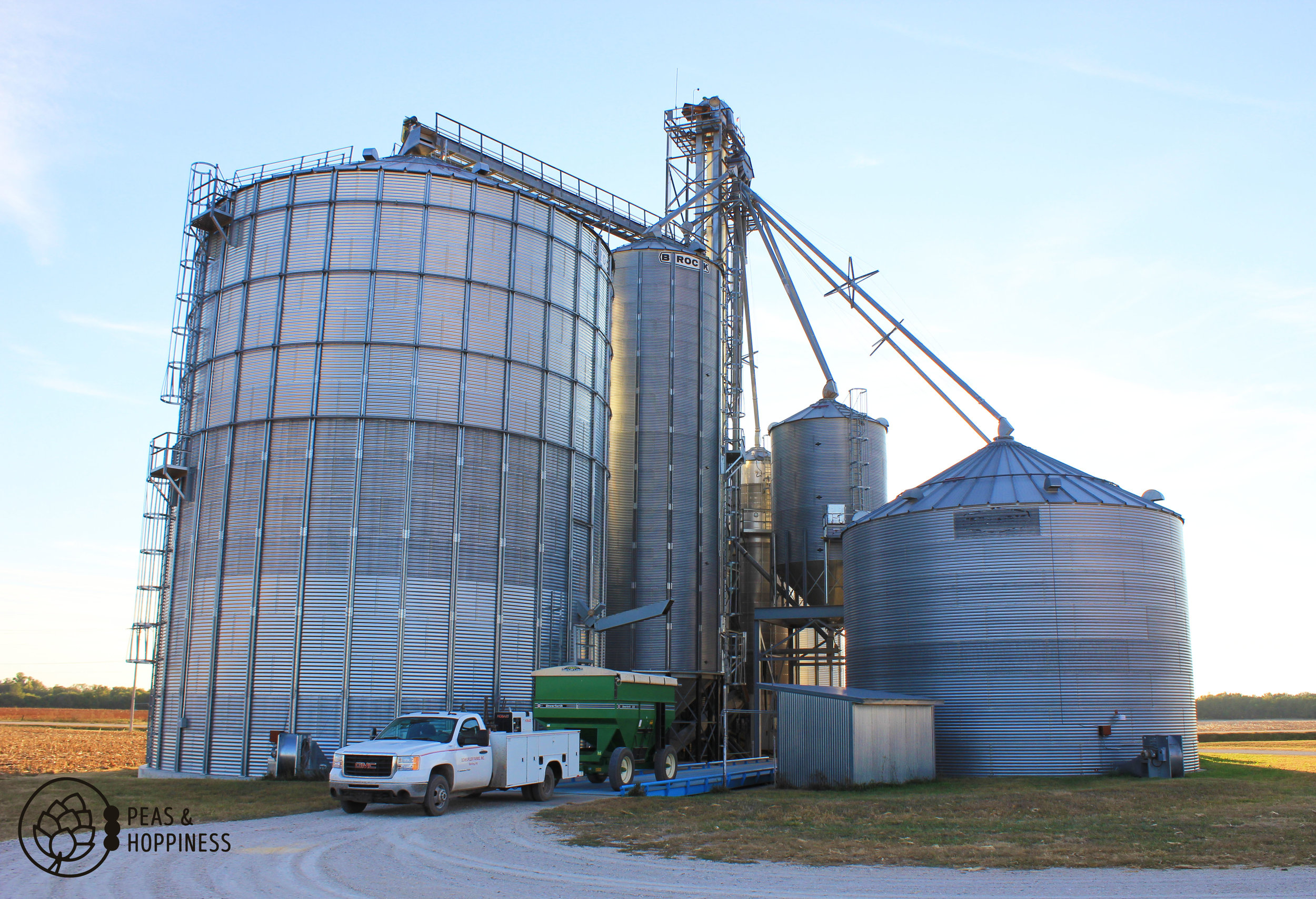
On-farm grain storage that allows quick emptying of trucks during harvest (no waiting in line!) and the ability to hold grain until prices climb in the off-season
Because large-scale commodity farms like Scheufler Farms operate the way they do, the United States is able to produce huge quantities of food more efficiently than any other country in the world at a relatively low cost. The major drawback is most of the food produced is not directly in the food chain. Rather it’s used to produce beef, ethanol for fuel, or transformed into an ingredient in other foods (see: Where Does it all Go?).
The one thing Lee Scheufler wants all Americans to know is: Be thankful that you live in a country that gives you the opportunity to buy the safest, most wholesome foods at the lowest cost of any place in the world. According to the USDA, Americans spend on average less than 10% of their disposable income on food.
“You can choose to spend your food dollars for less than the most efficient methods of production,” Lee continues, “but your choice to buy organic might really mean that someone else in the world goes hungry.”
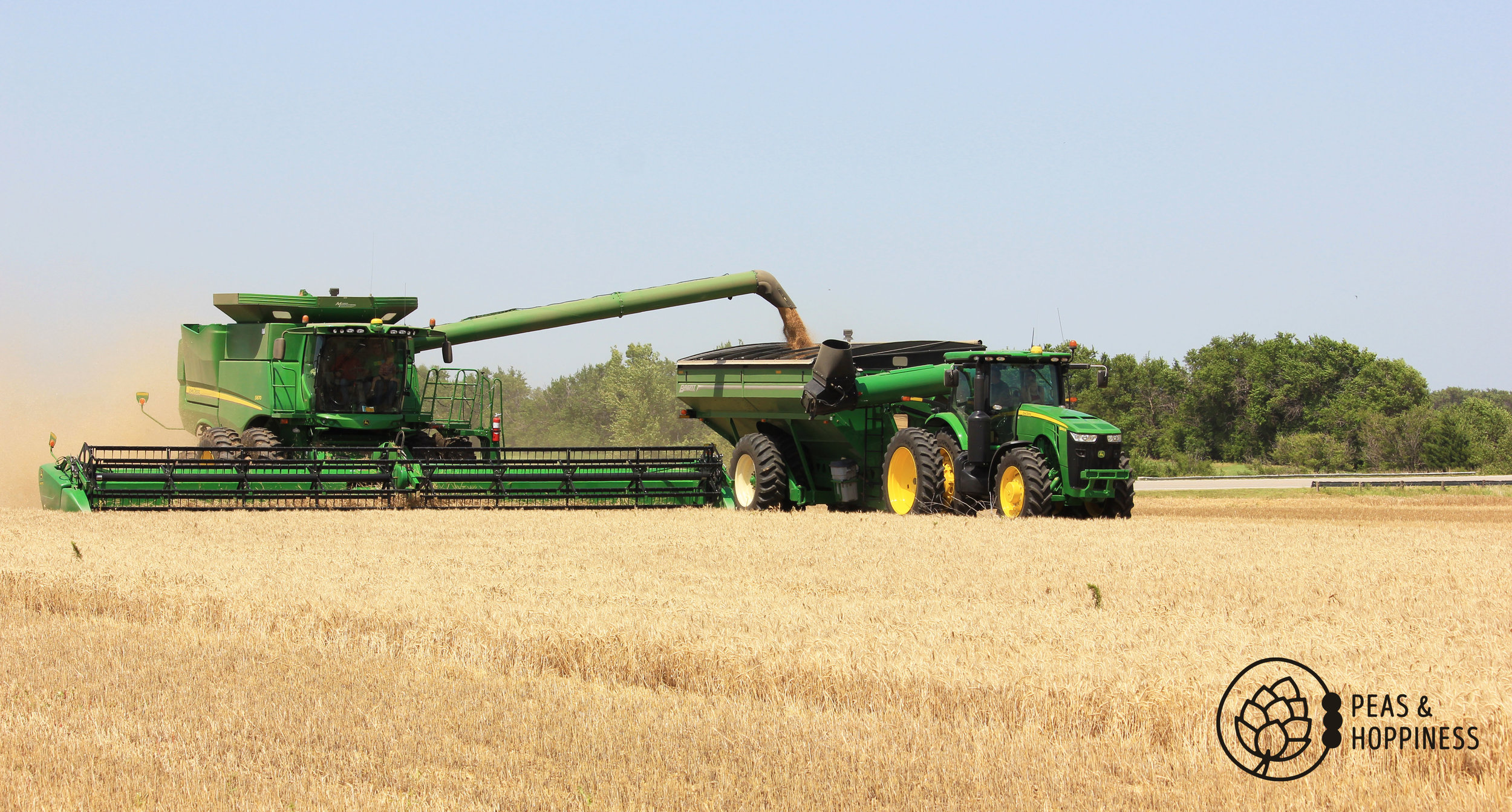
Kansas wheat harvest
Lee and Margaret love being their own boss, but they never really have a day off. It’s also difficult to have so many things outside their control. “Weather, market, the political system…” Margaret muses. “We’re at the whim of the whole political system. If the president decides to stay within our country in terms of trade we lose a lot of markets.”
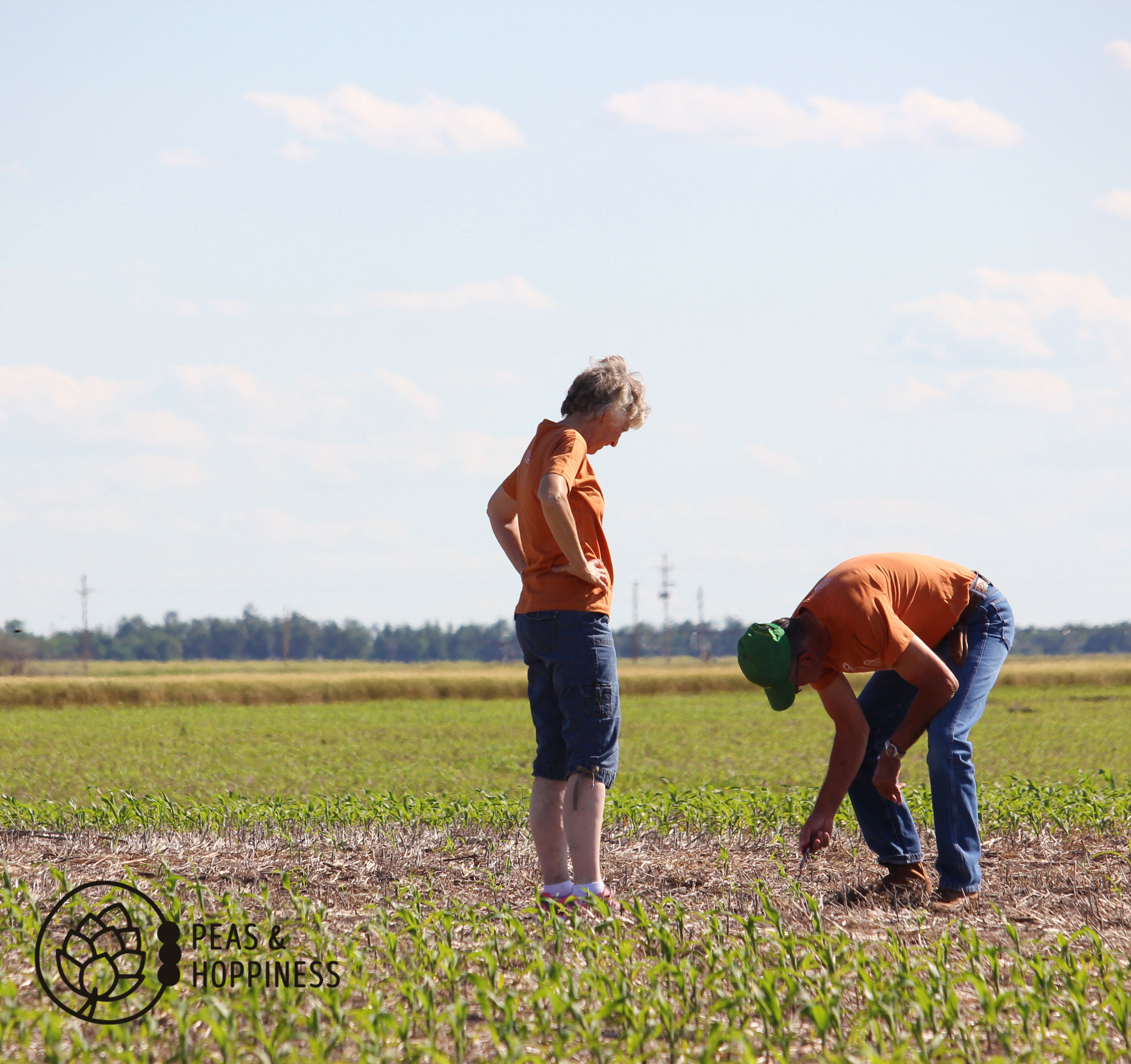
If they’re near a field, they’re farming. Checking to see if all seeds have germinated.
Despite all the challenges, Lee Scheufler loves to farm. He has so many stories about farming he can’t even tell me his favorite. “That changes just about every minute. That’s probably another part of why we like farming – the variability and the changing of what we do and when we do it and the cycle of what we do.”
Although the size of the field, the equipment, and technology has changed, the heart of a farmer has not. So if you encounter a farmer, shake his (or her) hand and say thank you.
Thank you, Scheufler Farms and many other producers for allowing us to live in a world where we never have to wonder if there will be food on the grocery store shelves.
With love, from Peas and Hoppiness
2 thoughts on “Sustainability Spotlight: Large-Scale Commodity Farm”
I’d love to hear more about why they’ve found cover crops to decrease production. Is that because they do no-till?
Amanda,
I’m not 100% sure (and I don’t know if they are either) but I believe that his hypothesis is that the most limiting factor early in a cash crops growth phase is the moisture availability. The cover crops use some of the stored moisture and don’t leave it available for the cash crops. With their no-till practices they already have plant matter in place to prevent erosion from heavy rains and prevent wind erosion. It is strongly possible that in other environments cover crops are a benifit, just their on farm data shows that for their conditions it doesn’t work out.